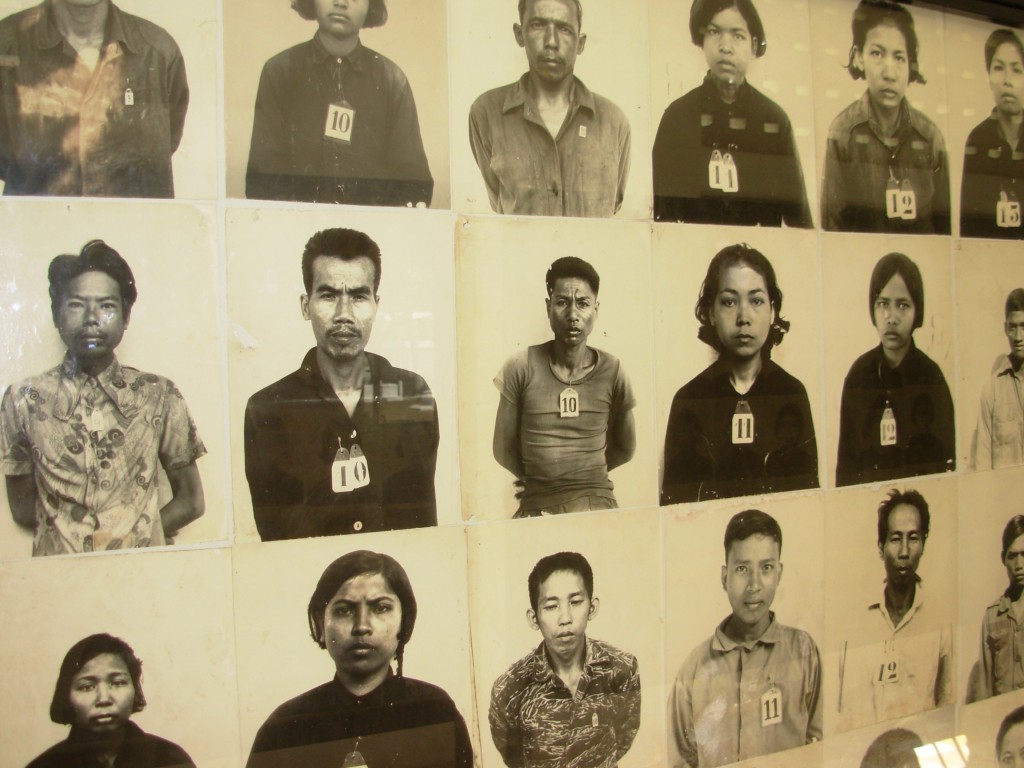Search
-
Recent Posts
- Dishing up Pulp Curry in a new way: why I am starting a Substack newsletter
- Book reviews: Deadly dames, midcentury Brit pulp and 1970s science fiction
- Mackenna’s Gold (1969): Gold, Ghosts and Frontier Violence
- Orphan Road book launch
- Orphan Road now available
- Pre-orders open for my new novel, Orphan Road
- Cover reveal: Orphan Road, my follow up to Gunshine State
- Breakfast in the Ruins podcast: New English Library Bikermania
- Why 1973 was the year Sidney Lumet took on police corruption
- Men’s Adventure Quarterly: Gang Girls issue
Categories
- 1960s American crime films
- 1970s American crime films
- 1980s American crime films
- 1990s American crime films
- Adrian McKinty
- Albert Dekker
- Andre De Toth
- Angela Savage
- Angie Dickinson
- Anthony Zerbe
- Asian noir
- Australian crime fiction
- Australian crime film
- Australian noir
- Australian popular culture
- Australian pulp fiction
- Australian television history
- Ava Gardner
- Beat culture
- Belmont Tower Books
- Ben Wheatley
- Billie Whitelaw
- Black pulp fiction
- Blaxsploitation
- Book cover design
- Book Reviews
- British crime cinema
- British pulp fiction
- Bryan Brown
- Burt Lancaster
- Carter Brown
- Charles Durning
- Charles Willeford
- Chester Himes
- Christopher G Moore
- Christopher Lee
- Cinema culture
- Claude Atkins
- Coronet Books
- Crawford Productions
- Crime Factory
- Crime Factory Publications
- Crime fiction
- Crime fiction and film from Africa
- Crime fiction and film from Cambodia
- Crime fiction and film from China
- Crime fiction and film from India
- Crime fiction and film from Indonesia
- Crime fiction and film from Japan
- Crime fiction and film from Laos
- Crime fiction and film from Latin and Central America
- Crime fiction and film from Malaysia
- Crime fiction and film from New Zealand
- Crime fiction and film from Scandinavia
- Crime fiction and film from Singapore
- Crime fiction and film from South Korea
- Crime fiction and film from Thailand
- Crime fiction and film from the Philippines
- Crime Fiction and film set in Vietnam
- Crime film
- Dangerous Visions and New Worlds Radical Science Fiction 1950 to 1985
- David Goodis
- David Peace
- David Whish-Wilson
- Derek Raymond
- Diana Dors
- Dirk Bogarde
- Don Siegel
- Don Winslow
- Donald Westlake aka Richard Stark
- Dystopian cinema
- Ernest Borgnine
- Eurocrime
- Fawcett Gold Medal Books
- Femme fatale
- Fernando Di Leo
- Filipino genre films
- Film Noir
- Forgotten Melbourne
- French cinema
- French crime fiction
- Garry Disher
- Gene Hackman
- George V Higgins
- Georges Simenon
- Ghost Money
- Giallo cinema
- Gil Brewer
- Girl Gangs, Biker Boys and Real Cool Cats: Pulp Fiction & Youth Culture, 1950-1980
- Gloria Grahame
- Gold Star Publications
- Gregory Peck
- Gunshine State
- Heist films
- Horror
- Horwitz Publications
- Humphrey Bogart
- Ian Fleming
- Interviews
- Ira Levin
- James Caan
- James Crumley
- James Ellroy
- James Hadley Chase
- James Woods
- Jim Brown
- Jim Thompson
- Joel Edgerton
- John Frankenheimer
- Joseph Losey
- Karen Black
- Kerry Greenwood
- Kinji Fukasaku
- Larry Kent
- Laura Elizabeth Woolett
- Lee Marvin
- Leigh Redhead
- Lindy Cameron
- M Emmet Walsh
- Mad Max
- Mafia
- Malla Nunn
- Martin Limon
- Megan Abbott
- Melbourne International Film Festival
- Melbourne Writers Festival
- Men's Adventure Magazines
- Michael Caine
- Michael Fassbender
- Mickey Spillane
- Monarch Books
- Ned Kelly Awards
- Neo Noir
- New English Library
- Newton Thornburg
- Noir Con
- Noir fiction
- Non-crime reviews
- Oren Moverman
- Orphan Road
- Ozsploitation
- Pan Books
- Parker
- Paul Newman
- Peter Boyle
- Peter Corris
- Peter Strickland
- Peter Yates
- Poliziotteschi
- Pulp fiction
- Pulp fiction in the 70s and 80s
- Pulp fiction set in Asia
- Pulp Friday
- Pulp paperback cover art
- Qui Xiaolong
- Raymond Chandler
- Richard Burton
- Richard Conte
- Robert Aldrich
- Robert Mitchum
- Robert Ryan
- Robert Stone
- Rock Hudson
- Roger Smith
- Rollerball
- Rosaleen Norton
- Roy Scheider
- Rural noir
- Sam Levene
- Sam Peckinpah
- Samuel Fuller
- Science fiction and fantasy
- Scripts Publications
- Sidney Lumet
- Sidney Poitier
- Simon Harvester
- Snowtown
- Snubnose Press
- Spies
- Stanley Baker
- Sterling Hayden
- Steve McQueen
- Sticking it the the Man Revolution and Counter Culture in Pulp and Popular Fiction 1950 1980
- Stuart Rosenberg
- Tandem Books
- Tart noir
- Tartan Noir
- Ted Lewis
- Toni Johnson Woods
- True crime
- Vicki Hendricks
- Victor Mature
- Vintage mug shots
- Vintage pulp paperback covers
- Wallace Stroby
- War film
- Westerns
- William Friedkin
- Woody Strode
- Yakuza films
- Yaphet Kotto
Nothing but noir
Recommended reading
The lurid world of pulp
- 20th century Danny Boy
- American Pulps
- Bear Alley
- Bloody, Spicy, Books
- Comics Down Under
- Everything second hand
- Existential Ennui
- Greenleaf Classic Books
- Irv O. Neil's Erotica is My Trade
- Killer Covers
- Lost Classics of Teen Lit 1939-1989
- Luminist Archives
- Men's Pulp Mags
- Mporcius Fiction Log
- Murder, Mayhem and Long Dogs
- Neglected Books
- Nocturnal Revelries
- Paperback Warrior
- Paperbacks of the Gods
- Pop Sensation
- Pulp artists
- Pulp Covers
- Pulp Crazy
- Pulp Flakes
- Pulp International
- Pulp Magazines Project
- Pulp Serenade
- Realms of the Night
- Romance Fiction Has a History
- Rough Edges
- Sin Street Sleaze
- Spy Guys and Gals
- The department of Afro American Research Arts & Culture
- The Dusty Bookcase
- The Haunted World of Richard Sala
- The Moon Lens
- The Nick Carter & Carter Brown Blog
- The Pulp & Paperback Fiction Reader
- Too Much Horror Fiction
- True Pulp Fiction
- Vault of Horror
- Vintage Nurse Romance Novels
- Vintage Romance Novels
- Welcome to the Pan Paperback
- Yellow and Creased
Support This Site
If you like what I do please support me on Ko-fi
Tag Archives: Andrew Nette
Beat to a Pulp Hardboiled 3 is live
I can’t think of a better way to finish 2013, than to have a story in a new anthology of crime fiction, Beat to a Pulp Hardboiled 3.
For those of you not familiar with it, Beat to a Pulp is an awesome little (although it seems to be expanding each time I look) US operation run by hardboiled crime fiction enthusiast, editor and all round gent, David Cranmer.
It features regular short crime fiction by some of the coolest writers around. David’s also increasingly active publishing his books and novellas under the Beat to a Pulp imprint.
If this sounds like your kind of thing, add it to your bookmarks because it’s a great site.
Anyway, for the last three years running, David has collected the best of the fiction appearing in Beat to a Pulp and released it as an anthology.
I have a story in the latest anthology, Beat to a Pulp Hardboiled 3. ‘One Ashore in Singapore’ features my character Gary Chance, formerly of the Australian army and now a professional criminal. It’s a down and dirty tale of false identities, double dealings and the challenges of finding late night accommodation.
It’s my chance to play with some of the big girls and boys of the US hardboiled crime fiction scene – Patti Abbott, Hilary Davidson, Chris F Holm, Kieran Shea, Josh Stallings, Sophie Littlefield, Keith Rawson, and Fred Blosser.… Read more
Pulp Curry added to National Library of Australia’s web archive
In a sign of just how much Australia’s culture is on the skids, this site, Pulp Curry, is to be added in the National Library of Australia’s PANDORA Archive.
PANDORA is the National Library e-archive dedicated to enabling the long term preservation of online publications to ensure Australians have access to their documentary heritage now and in the future.
It’s a wonderful honour for my site to be included on the PANDORA Archive. I also get a thrill out of the fact that future generations will be able to check out my musings on Australian and international crime fiction and film, obscure pulp novels and associated topics.
For some reason, it reminds me of that scene from one of my favourite seventies dystopian science fiction films, Rollerball, when Jonathan E visits the super computer Zero to try and find out more about the corporations running the planet.
This is what he finds:
Photo credit: Angela Savage… Read more
Fact and fiction in criminal case file 002
Late last week Ieng Sary aka criminal case file 002, former foreign minister for the charnel house known as the Khmer Rouge regime, died in Phnom Penh at the age of eighty seven.
One of five senior members of the Khmer Rouge being investigated by an international tribunal, Sary died denying he had any role in overseeing the death by starvation, torture and murder of approximately 1.7 million Cambodians between 1975 and early 1979.
Unfortunately, he escaped justice, dying before the tribunal could hand down its findings into his case.
Described in the charge sheet as ‘retired’, he lived peacefully in the former guerilla strong hold of Pailin until 2007, when an ageing Soviet-era chopper swooped down and police arrested and bundled him off to Phnom Penh.
For me, the news of the 87-year-old Sary’s death was very much a case of fact and fiction merging. Sary’s defection from the Khmer Rouge in 1996 forms the historical backdrop of my crime novel set in Cambodia, Ghost Money.
Normally, I’d feel dreadful using someone’s death as an excuse to plug my book, but I’ll make an exception in Sary’s case.
I was just about to a stint as a journalist with one of the wire services in Phnom Penh, when news of Sary’s defection from the Khmer Rouge broke.… Read more
How I came to write Ghost Money
 I started writing the book that eventually became my debut novel Ghost Money in 1996 when I worked for several months in Cambodia as a wire service journalist.
I started writing the book that eventually became my debut novel Ghost Money in 1996 when I worked for several months in Cambodia as a wire service journalist.
I’d first travelled to Cambodia in 1992 while living in neighbouring Laos. It was a desperately poor and traumatised country. The Khmer Rouge, responsible for the deaths by starvation and torture of approximately 1.7 million Cambodians during their brief rule in the seventies, were still fighting from heavily fortified jungle bases. The government was an unstable coalition of two parties who’d been at each other’s throats for the better part of a decade and whose main interests were settling historical scores and making money.
Phnom Penh, the crumbling capital of the former French colony, was crawling with foreigners; peacekeepers sent by the West and its allies to enforce peace between the various factions, and their entourage of drop outs, hustlers, pimps, spies, do-gooders and journalists. The streets teemed with Cambodian men in military fatigues missing legs and arms, victims of the landmines strewn across the country. There was no power most of the time. The possible return of the Khmer Rouge caste a shadow over everything.
When the opportunity arose several years later to fill in with one of the wire services, I jumped at it.… Read more






















